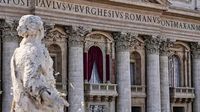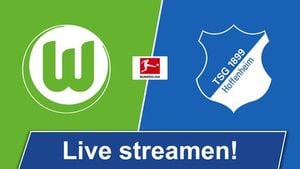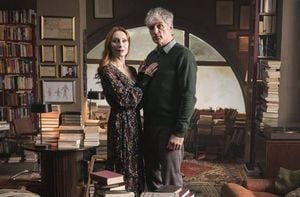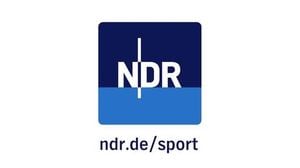VATICAN CITY – On Wednesday, May 7, 2025, the Vatican's 133 cardinal electors gathered in Rome to begin the process of electing a new Pope following the passing of Pope Francis on April 21. This conclave, described as one of the most unpredictable in recent centuries, takes place during a politically sensitive time marked by tensions in the Middle East and a resurgence of conservative politics.
As of 15:00 CET, all telephone communications within the Vatican were cut off, ensuring the secrecy of the voting process. The cardinals are sequestered from the outside world, following centuries-old rituals inside the Sistine Chapel. Each cardinal is granted one vote, and a two-thirds majority is required for the election of the new pontiff.
During the first day of voting, only one round is conducted, followed by four additional rounds over the next two days. From the fourth day onward, the cardinals will hold seven rounds of voting each morning and afternoon until they reach a total of 30 rounds. If no decision is reached after 30 votes, only the two leading candidates will remain in contention.
Historian Miles Pattenden, a Programme Director for the Europaeum, anticipates that a new Pope will likely be elected by Friday, May 9, 2025. "It's usually resolved within the first five, six ballots. So, we would expect a new Pope on about Friday, probably," he said.
As the cardinals cast their votes, analysts suggest that it is not the global political climate that will ultimately influence their decision but rather the power of the Church’s moderate majority. The conclave is the most geographically diverse in the Catholic Church’s 2,000-year history, with cardinals representing 70 countries.
Thomas Cattoi, a professor at the Pontifical University of Saint Thomas Aquinas in Rome, noted that the conclave is unlikely to resemble the fictional power struggles depicted in movies. "These two factions comprise only a small minority of electors, and the votes of the vast majority of moderates will determine the outcome of the election," he explained. "Moderates are neither traditionalists nor progressives and may not be as well known, but they are more likely to gather the votes of a larger number of cardinals."
Potential candidates include Cardinal Secretary of State of Vatican City, Pietro Parolin, and Archbishop of Bologna Matteo Maria Zuppi. While several media reports suggest that Cardinal Parolin is a frontrunner, his involvement in sealing a 2018 secret China-Vatican agreement may raise concerns among conservatives.
When asked how current global political circumstances might affect the cardinals’ vote, Pattenden remarked, "They’re probably aware of how global politics is changing, and it’s quite likely that that will be accommodated to some degree in their choice of the Pope." This indicates a preference for a cautious and moderate figure who can help the Church remain relevant amid shifting political landscapes.
However, this does not imply that the new Pope will align closely with former President Donald Trump or the MAGA movement. Pattenden noted, "There is not enough support for that." Similarly, Cattoi expressed concerns that an American Pope during a Trump presidency might be viewed as a liability.
The ongoing tensions in the Middle East could also play a role in the cardinals' decision-making process. Pattenden pointed out, "There’s often a sense of caution in the Church that don't want to alienate either side of these great conflicts." He referred to Cardinal Pizzaballa, the Latin Patriarch of Jerusalem, who has openly supported Palestinians and criticized Israel's actions in Gaza. However, his "relentless criticism" of Israel has raised concerns within the Vatican.
Moreover, Pizzaballa’s age—he is just 60—might also count against him, as some cardinals may be hesitant to elect someone likely to serve for two decades or more. The possibility of a non-European Pope, particularly from Africa or Asia, could signal a significant shift in the Vatican's relationship with Europe. Pattenden suggested that this shift might not be beneficial for either side, especially if an African Pope were to impose teachings at odds with European Union values.
As the cardinals prepare for the first vote, which is expected by Wednesday evening, black smoke could be anticipated from the Sistine Chapel chimney around 7 PM if no winner is found. From Thursday, May 8, up to two ballots can be held in the morning and two in the afternoon until a new Pope is elected. Historical precedents show that finding a new pontiff can vary in duration; for instance, Pope John Paul I was elected on the third ballot in 1978, while Pope John Paul II required eight ballots, and Pope Francis was elected on the fifth ballot in 2013.
As the world watches for the white smoke signal from the Sistine Chapel, the conclave's outcome will undoubtedly shape the future of the Catholic Church and its 1.4 billion followers worldwide. The significance of this election extends beyond the walls of the Vatican, resonating with the global community as the Church navigates its role in an increasingly complex world.




